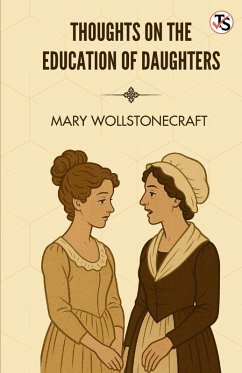Thoughts on the Education of Daughters (1787) is Mary Wollstonecraft's pioneering and insightful work that laid the groundwork for modern feminist thought. Written in the late 18th century, this early treatise passionately advocates for the intellectual and moral education of women, at a time when their roles were largely confined to domestic duties and social decorum. Wollstonecraft urges society to move beyond superficial accomplishments and instead focus on cultivating reason, virtue, and independence in young women. She argues that proper education is essential not only for women's personal fulfillment but also for their ability to raise virtuous children and contribute meaningfully to society. The book covers practical topics such as morality, reading habits, domestic responsibilities, and social behavior-all while questioning the rigid gender norms of the time. Though less radical than her later work A Vindication of the Rights of Woman, this debut offers a clear and thoughtful critique of the educational limitations placed on women. It remains a powerful reminder of the importance of equality, personal dignity, and intellectual growth for all. Timeless in its vision and ahead of its time in thought, Thoughts on the Education of Daughters is an essential read for those interested in the roots of feminist philosophy and educational reform.
Bitte wählen Sie Ihr Anliegen aus.
Rechnungen
Retourenschein anfordern
Bestellstatus
Storno








